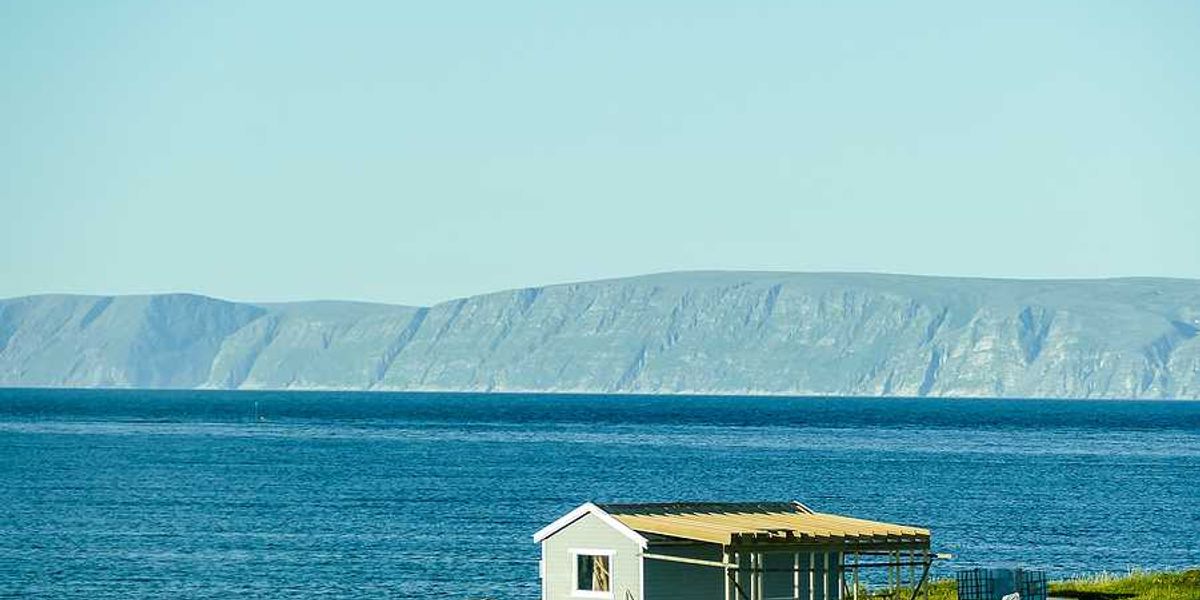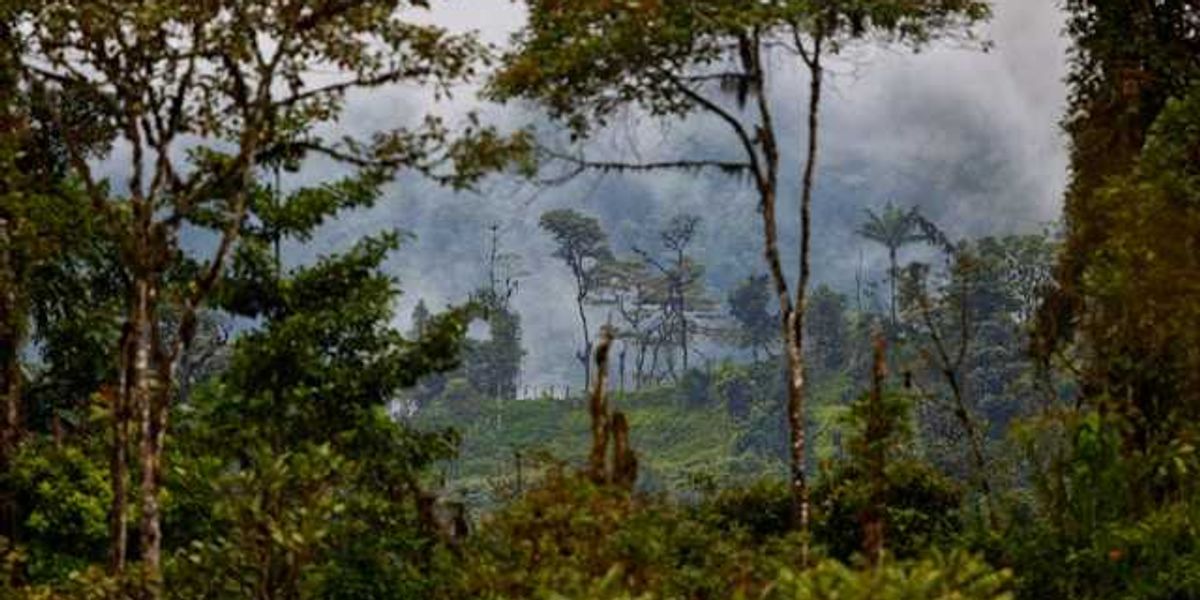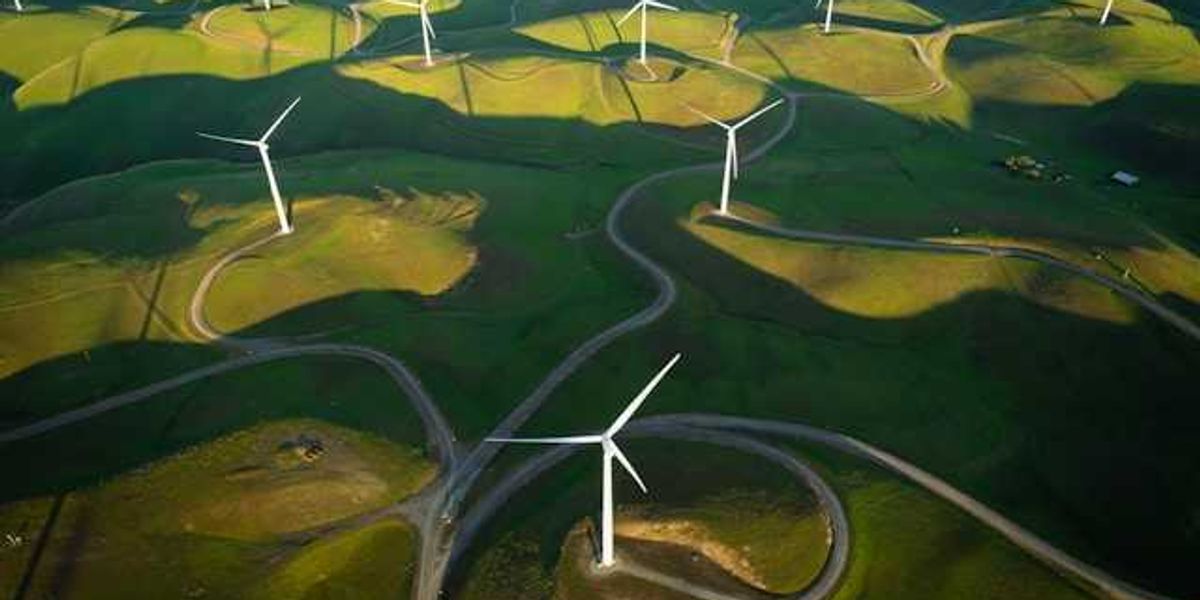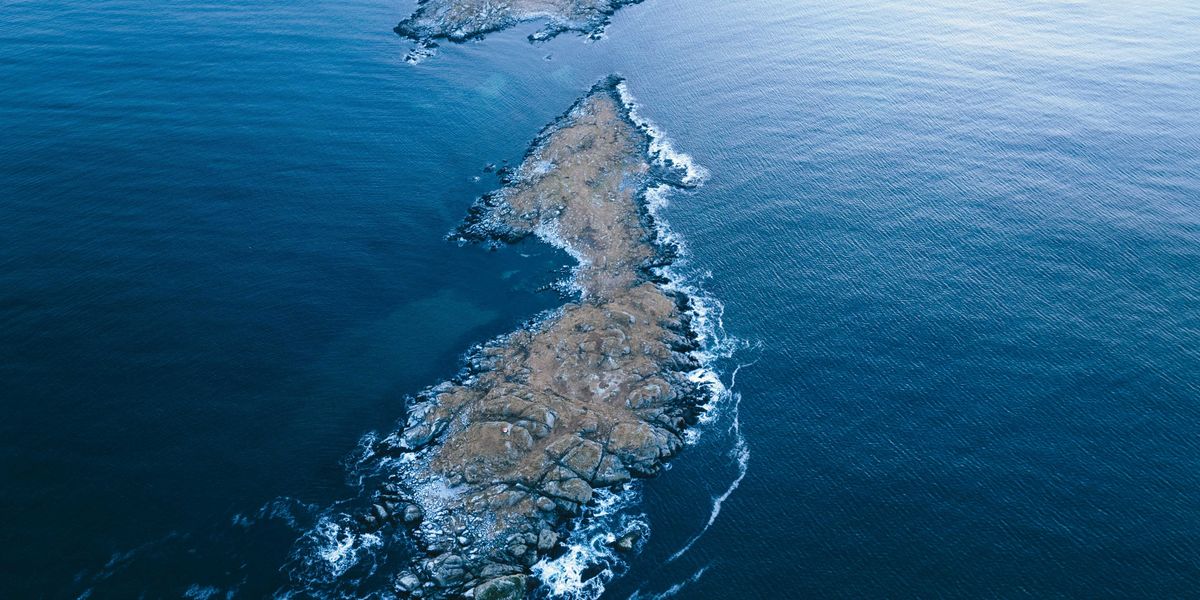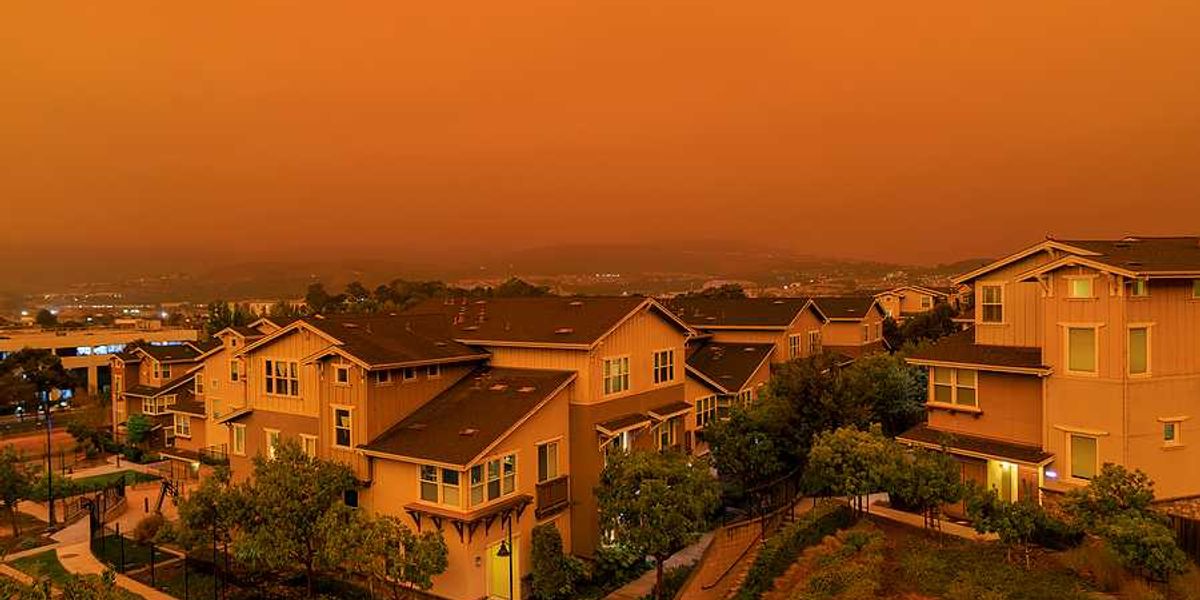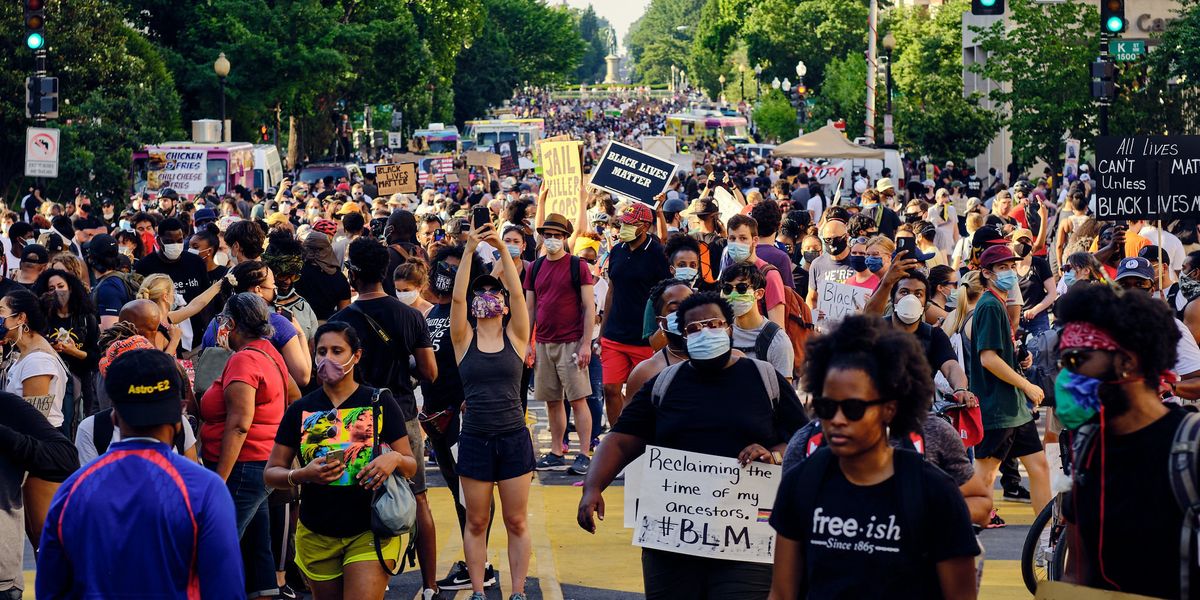
Pandemics, policing, and a just transition
We are witnessing the unexpected convergence of demands for environmental justice, public health, and prisoner rights.
These are difficult and trying times.
We are all experiencing great anxiety associated with living through a global pandemic and a time of massive racial unrest, protest, and racist police violence.
The horrors of the COVID-19 virus have been compounded and multiplied by the virus of white supremacy. The murders of Breonna Taylor, George Floyd, Ahmaud Arbery, Tony McDade, David McAtee and so many other Black people have reminded us that some of this nation's denizens are singled out for punishment, torture, and death for no reason other than the color of their skin.
These challenges are hitting home for many of us who are ill or taking care of loved ones who are ill, immune-compromised or otherwise vulnerable during this pandemic. It hits home for those of us who are at risk of police violence. And it hits home for those of us who are simply concerned about the health and wellbeing of our families and our communities.
Many of us are on the frontlines, providing mutual aid to people in need of food and basic services in the absence of a functioning federal government and health care system. Many of us have been protesting in the streets for racial justice in nations around the world that perpetrate unrestrained violence against many of its citizens simply because of their racial-ethnic heritage.
And still more of us are sending various forms of support to communities around the U.S. and the world during this time of great need and deprivation.
It may not feel like it but there are signs of progress. The status quo of environmental harm, mass incarceration and police brutality is under the microscope, and people who have long chosen to ignore these social ills are being forced to reckon with them. We are seeing the advancement of ideas and policies that would have been unthinkable before these dual crises.
But the next steps will be crucial and—whether re-purposed police or fossil fuel workers—must have equity at their core.
Coronavirus, climate change and contamination
We know that some of the very same communities hit hardest by COVID-19 are impacted most heavily by police violence in particular and by institutional racism more broadly.
In recent months, we have seen that the rates of COVID-19 infections and deaths among Black, Latinx, and Indigenous communities are much higher than for whites because of higher rates of pre-existing conditions, lower quality medical care (when accessible at all), and the more general stresses and health toll associated with living in a racist society that places a much lower value on the lives of people in these demographic categories.
Similarly, the scourge of environmental racism and climate injustice disproportionately harms Black and brown communities, Indigenous communities, and immigrant communities because government and corporate institutions know that these populations offer the path of least resistance, have fewer connections to the corridors of political and economic power and influence, and are broadly viewed by this nation's majority as less than deserving of adequate environmental and public health protections.
These populations have contributed the least to the problem of global climate disruption but are on the front lines of this crisis as they are more likely to: live near coal-fired power plants, which are the leading contributor to climate gas emissions and produce widespread asthma and other respiratory illnesses; suffer from extreme temperatures in urban heat islands; pay more of their income toward energy bills; and experience the brunt of agricultural losses and food shortages associated with climate-related events.
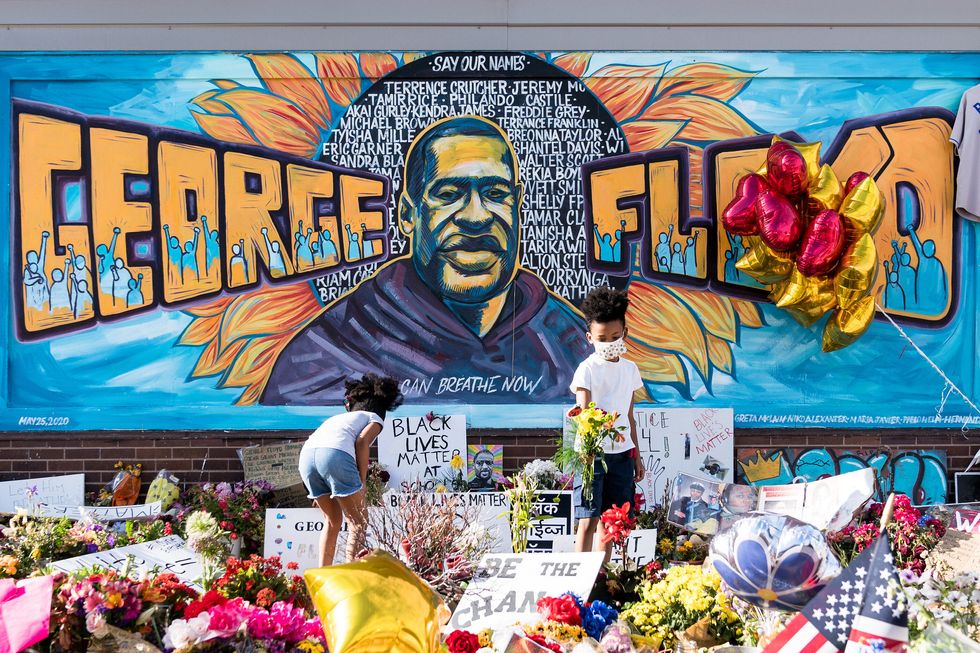
The George Floyd mural in Minneapolis, Minnesota. (Credit: Lorie Shaull/flickr)
The prison pandemic
Some scholars have reframed police brutality as an environmental justice concern because it negatively affects the health of individuals, families, and entire communities, as assaults on our bodies by agents of the state reflect the ways that the state also launches assaults on our air, land, and water. Thus, in COVID-19 and police brutality, we have two intersecting public health crises that unjustly harm certain communities, while other populations enjoy the unearned privileges of breathing cleaner air, drinking cleaner water, and not worrying about whether the presence of a police officer might mean a death sentence.
The crises of COVID-19 and police brutality are coming together inside the nation's prison system as well. Racist "over-policing" and racial profiling in communities of color, and institutional racism in the court system have resulted in a national prison population that is majority Black and brown, and low-income.
There is now clear documentation that the U.S. prison and jail system is inherently unsafe and unhealthy even during the best of times. Water systems in carceral facilities across the U.S. are infamously contaminated, mold and polluted air are extremely common, and many prisons sit atop or adjacent to hazardous waste sites. This means prisons are sites of extreme environmental racism and injustice.
As if that were not enough, the design and layout of prisons and jails makes it impossible to practice the physical distancing required to slow community transmission of COVID-19, which means that being sent to one of our nation's carceral facilities constitutes cruel and unusual punishment and deliberate indifference to the health and well-being of our fellow community members.

Police at a Black Lives Matter Protest on June 2, 2020, in Washington, DC. (Credit: yashmori/flickr)
“Equity and democracy are good for people and the environment”
As a scholar concerned with environmental injustices that are rampant across the landscape, I have to ask, to what extent might the current crisis offer a way of thinking creatively about what environmental justice might look like?
We are seeing hopeful signs already. The COVID-19 pandemic has forced many states and counties to see the wisdom of decarceration—releasing prisoners and inmates who have low level offenses on their records and offering early release for prisoners who are nearing the end of their sentences anyway. Some states are considering revising sentencing guidelines so that we can move beyond policies that seek to fill up prisons and instead work to prevent people from going there in the first place.
Many communities are also seriously considering defunding and divesting from their police departments. Just six months ago, these ideas and practices were nearly unthinkable, but when crises emerge, they often present opportunities to implement changes that were previously off the table.
The fact that decarceration and police defunding are gaining mainstream acceptance is amazing, if only because these are pages taken directly from the playbook of prison abolitionists who have, for decades, advocated these practices as major steps toward removing prisons from society altogether. In these policy discussions we are witnessing the unexpected convergence of demands for environmental justice, public health, and prisoner rights.
Another significant front in the movement for environmental and climate justice is the idea of a "fair and just transition" for those workers in industries that are the biggest polluters.
For example, any vision of moving toward an ecologically sustainable society should beg the question as to what would happen to the millions of people who hold jobs in fossil fuel, petrochemical, and related industries that have proven anti-ecological consequences? Do we simply throw them out of work or make hollow promises of job training for employment in unspecified sectors? Or do we actually plan for and invest in good-paying, safe, union jobs in industries that are designed to address our social and environmental challenges?
That is the promise of the Green New Deal (both the federal version and the many local models around U.S. cities, counties, and states). Here's an idea: why not also apply the concept of a fair and just transition to the police and prison corrections officers? In other words, if policing and prisons are sites of environmental racism and injustice, then why not treat those workers the same way environmentalists envision treating the workers in other environmentally troubled sectors?
The current national discussion about defunding and divesting from police departments is edging toward this idea but hasn't quite grasped it because it tends to advocate simply taking the money away from law enforcement and investing it in other worthy sectors like education, healthcare, and green industries.
We need more teachers, more nurses and mental healthcare providers, and more workers building renewable energy and public transportation grids, and affordable housing.
So, what would make those proposals to defund and dismantle police departments much more robust and politically feasible would be to offer law enforcement—and prison workers—the opportunity to transition into those more socially and environmentally sustainable jobs.
Fortunately, empirical research demonstrates quite clearly that communities that are more protective of human rights and civil rights for marginalized populations are also much more likely to have strong environmental and climate protections.
In other words, equity and democracy are good for people and the environment.
I suggest that we guard against tyranny and work toward justice for communities on the frontlines of the pandemic and environmental injustice (whether at the hands of the police or polluting firms), and create fair and just transitions for those of us whose livelihoods are rooted in those industries whose time is up.
David Pellow is a Professor of Environmental Studies at UC Santa Barbara.
His views do not necessarily represent those of Environmental Health News, The Daily Climate or publisher, Environmental Health Sciences.
Banner photo: Black Lives Matter Protest June 6, 2020, in Washington, DC. (Credit: Geoff Livingston/flickr)

